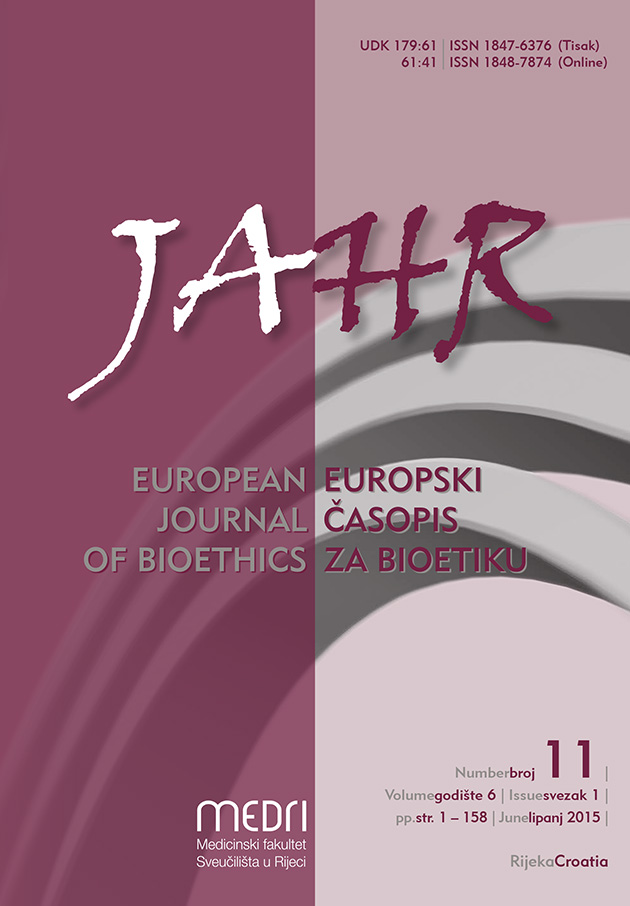The medizinische Anthropologie of the Heidelberg School. Implications for bioethics
Keywords:
Heidelberg School, bioethics, reciprocity, solidarity, medical ethics, German medicineAbstract
This paper presents some of the thought framework underlying the movement characterized as anthropologische Medizin and medizinische Anthropologie, developed by the Heidelberg School. Drawing particularly upon the work of Viktor von Weizsäcker and Paul Christian, an attempt is made to relate the basic concepts of solidarity and reciprocity to current American bioethical thinking. Attention is paid to the peculiar historical circumstances and consequences of Third Reich medicine and to the critical test of its major forms of theory and practice represented by the Nürenberg doctors’ trial of 1947. A major conclusion need for a more complete reconstruction of the theoretical underpinnings of the Heidelberg School writings and a more thorough study of its relevance to contemporary medical humanities and bioethics.
Downloads
Published
Issue
Section
License
Authors who publish with this journal agree to the following terms:
- Authors retain copyright and grant the journal right of first publication with the work simultaneously licensed under a Creative Commons Attribution License that allows others to share the work with an acknowledgement of the work's authorship and initial publication in this journal.
- Authors are able to enter into separate, additional contractual arrangements for the non-exclusive distribution of the journal's published version of the work (e.g., post it to an institutional repository or publish it in a book), with an acknowledgement of its initial publication in this journal.
- Authors are permitted and encouraged to post their work online (e.g., in institutional repositories or on their website) prior to and during the submission process, as it can lead to productive exchanges, as well as earlier and greater citation of published work (See The Effect of Open Access).



